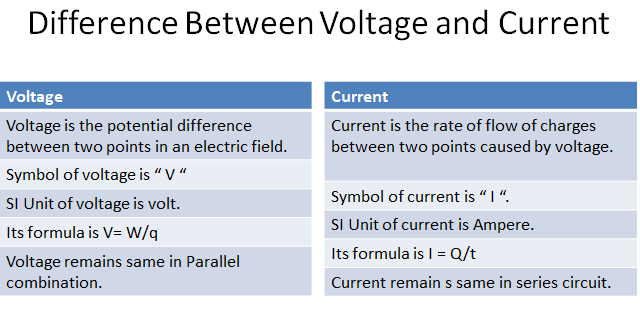Electronics
-
Difference between Windows and Linux
The Difference between Windows and Linux is given here. Windows and Linux are operating systems that are booming today that allow us to take advantage of computing resources. The main difference between the two is their price, one is paid and the…
-
Difference between Sensor and Transducer
The Difference between Sensor and Transducer is given here. A sensor is a device that has the ability to detect external actions or stimuli and respond to them. A transducer is a device that provides usable output in response to…
-
Difference Between Amplitude and Frequency Modulation in Tabular Form
Basically there are three types of modulation, frequency modulation, amplitude modulation, and Phase modulation. The basic difference between amplitude and frequency modulation is that in frequency modulation audio signals change frequency of carrier wave while in amplitude modulation audio signals…
-

Difference Between Voltage and Current
The basic difference between voltage and current is that Voltage is the amount of energy per charge which is required to move electrons from one point to another, while current is the rate of flow of charges. What is voltage…
-
Factors Affecting Resistance
Resistance is the property of the material that restricts the flow of electrons. There are four factors affecting resistance which are Temperature, Length of wire, Area of the cross-section of the wire, and nature of the material. When there is…
-
What are Different types of Diode?
A diode is a two-terminal device formed by two doped regions of silicon separated by a PN junction. The most common category of the diode, known as the general-purpose diode, is covered. Zener diode, PN junction diode, Tunnel diode, Varactor diode, Schottky diode,…
-
5 band resistor colour code
Carbon resistors are most common in electronic equipment. They consist of a high-grade ceramic rod or cone ( called the substrate on which is deposited a thin resistive film of carbon. The numerical value of their resistance is indicated by…
-
Structure of atom for class 9 and 11
what is Atom? “Atom is the smallest particle of an element that possesses the unique characteristics of that element.” All matter is composed of atoms; all atoms consist of electrons, protons, and neutrons except normal hydrogen, which does not have…
-
Types of semiconductor
Types of Semiconductor is Provided here. If you want to learn about semiconductor and its types, Then you are at the Right Place. Let’s dive right in.. In terms of their electrical properties, materials can be classified into three groups:…